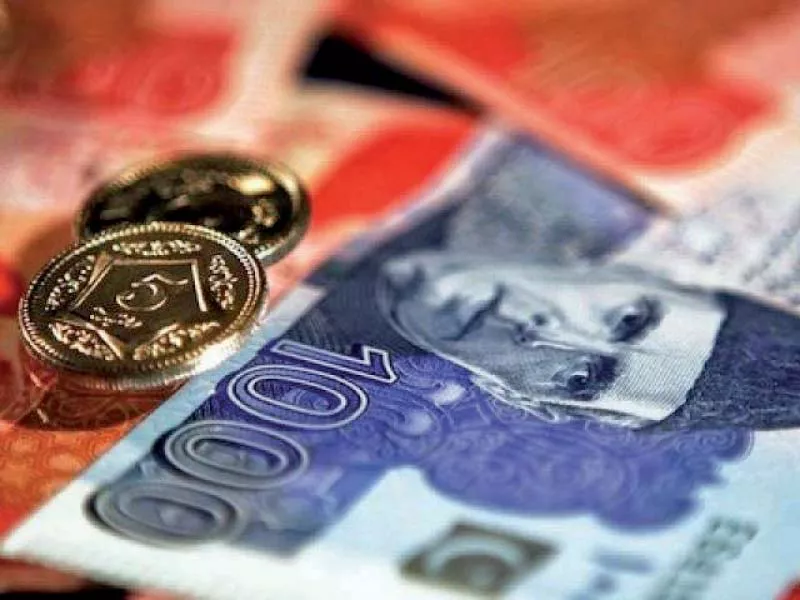Govt cuts profit on saving schemes
Move follows aggressive cut in interest rate by central bank
KARACHI: The government has cut the rate of profit by up to three percentage points on different National Saving Schemes with immediate effect, the Central Directorate of National Savings (CDNS) reported on Friday.The move may lead to missing the target set for raising low-cost financing under the saving schemes and prompt the government to acquire comparatively costlier debt from other avenues to meet estimated expenditures at a time when the need for financing is high to fight the coronavirus pandemic.
"The rates were revised down after the State Bank of Pakistan (SBP) aggressively cut the benchmark interest rate by 4.25 percentage points in March and April (to a 17-month low) at 9%," a CDNS official said.
The rate cut has brought down the rate of profit on government's debt securities ie 3 to 12-month treasury bills (T-bills) and 3 to 30-year Pakistan Investment Bonds (PIBs).
"We reinvest in PIBs and T-bills our investors' funds and offer them profit from the one get through the reinvestment," the official elaborated. "There are around seven million people that have invested in the saving schemes so far," he said.
The revised rates will be applicable to new investments and not on the ones made before April 24, 2020. National Saving Schemes offer fixed rates of profit and not variable rates of return.
The government utilises the financing received through PIBs and T-bills to bridge the gap in estimated expenditures.
The finance ministry has reduced the rate of profit by 1.86 percentage points to 8.54% on Defence Saving Certificates (DSCs), by 1.92 percentage points to 10.32% on Behbood and Pension Funds, by 1.60 percentage points to 7% on Savings Account and by three percentage points to 8% on Special Saving Certificates (SSC), it was learnt.
The government had set the target of raising Rs275.63 billion through the National Saving Schemes in the current fiscal year ending June 30, 2020, according to the annual budget documents for FY20.
It raised a total of Rs123.82 billion in first seven months (July-January) of the current fiscal year, according to the State Bank of Pakistan (SBP).
The raised funds in the seven months came to around 45% of the targeted collection. The cut in the rate of profit has made the National Saving Schemes less attractive and has made it more difficult to raise the remaining 55% financing by the end of FY20.
The situation will force the government to go for deficit financing from comparatively costlier avenues eg commercial banks as it needs more funds to fight the health crisis, address hunger and fund relief packages announced to support industries, construction sector and daily-wage earners during the current lockdown.
Moody's Investors Service - one of the top three global credit rating agencies - said the other day Pakistan's growing need for financing would widen its fiscal deficit to 9.5-10% of gross domestic product (GDP).
"We expect that Pakistan's financing needs will rise because of coronavirus-related economic effects and the government's Rs1.2-trillion ($7 billion, 2.7% of GDP) stimulus package, approved on March 30," Moody's said.
The country recorded 8.9% fiscal deficit in the previous fiscal year ended June 30, 2019.
The SBP has already cut the benchmark interest rate to cope with the pandemic. Otherwise, the rate would have remained quite high keeping in view the inflation reading that is expected to remain in double digits at 11.8% in FY20.
"The new individual investors may now opt to invest in gold, stocks and even in property, which are offering comparatively higher rates of return," the CDNS official added.
Alpha Beta Core CEO Khurram Schehzad, however, said the government was not in need to raise more debt to overcome the fiscal deficit after the International Monetary Fund (IMF) provided low-cost emergency financing worth $1.38 billion to support Pakistan's fight against the Covid-19 health crisis.
Besides, the World Bank and Asian Development Bank (ADB) are also considering providing more financing and the Paris Club is also considering rescheduling Pakistan's debt.
In addition to this, the aggressive cut of 4.25 percentage points in the SBP's benchmark interest rate has indirectly reduced Pakistan's debt by Rs1.4 trillion. "A one-percentage-point cut in the benchmark interest rate reduces debt repayment by Rs330 billion," he said.
Published in The Express Tribune, April 25th, 2020.
Like Business on Facebook, follow @TribuneBiz on Twitter to stay informed and join in the conversation.


COMMENTS
Comments are moderated and generally will be posted if they are on-topic and not abusive.
For more information, please see our Comments FAQ